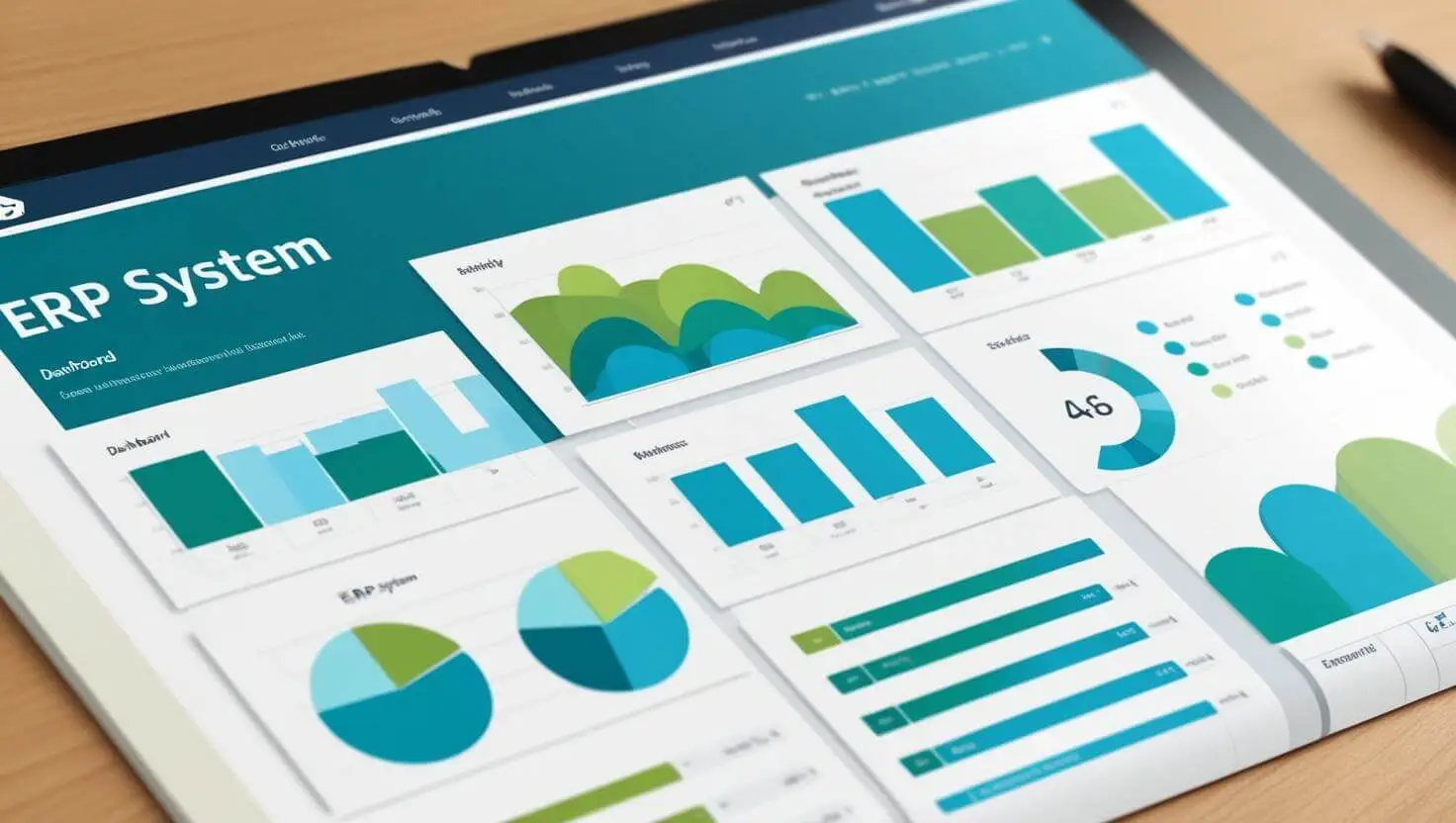Best ERP Systems for Small Business for 2025
ERP software brings all your business processes together in one system, making it easier to streamline operations and work more efficiently. It connects everything from finance and inventory to sales and HR, giving you a clear view of your business in one place.
Why You Can Trust the Expertise of Sonary
At Sonary, we are committed to providing accurate and trustworthy information to help you make informed decisions. Our research process is meticulous, transparent, and guided by a dedication to maintaining the highest standards of integrity, ensuring accurate, real-world insights.
Read more
Unlike many other review platforms, we conduct in-depth evaluations of the software and services we feature. Our expert team tests and actively uses the tools we review to understand their features, performance, and value comprehensively. Our assessments are based on real-world use, giving you insights beyond surface-level descriptions. Our research methodology includes analyzing key consumer factors such as pricing, functionality, device usability, scalability, customer support quality, and unique industry-specific features. This hands-on approach and dedication to transparency mean you can trust Sonary to deliver regular, up-to-date content and recommendations that are well-researched and genuinely helpful for your business needs.Quick Comparison
| Feature | Cloud-Based | Ideal For | Ease of Use | Cost |
| Microsoft Dynamics 365 | Yes | Microsoft users | Moderate | Moderate |
| Oracle NetSuite | Yes | High-growth firms | Moderate | High |
| Sage Intacct | Yes | Financial focus | Easy | Affordable |
| Acumatica | Yes | Industry-specific | Easy | Affordable |
| QT9 QMS | Yes | Compliance-heavy | Easy | Affordable |
| SAP ERP | Yes | Long-term growth | Complex | High |
Our Top Picks
Choosing the right ERP software is essential for small businesses looking to streamline operations and boost efficiency. We’ve curated a list of the best tools designed to meet the unique challenges of smaller organizations, offering user-friendly features, scalability, and affordability. Discover our top picks below to find the perfect solution for your business needs.
Microsoft Dynamics 365 Business Central
 Seamless Microsoft 365 app integrations
Seamless Microsoft 365 app integrations  Robust business management & reporting
Robust business management & reporting Microsoft Dynamics 365 Business Central is a highly regarded ERP software solution for small to medium-sized businesses. It provides a comprehensive suite of tools for managing core business operations, including finance, sales, and operations. This ERP solution stands out due to its seamless integration with the Microsoft ecosystem. This integration makes it an excellent choice for businesses already relying on tools like Office 365, Teams, and other Microsoft applications. It enhances productivity and creates a familiar user experience, reducing the learning curve for teams already accustomed to Microsoft products.
Key Features
- Comprehensive finance management: Tools for budgeting, cash flow forecasting, and account management make it easy to monitor financial health.
- Inventory management: Real-time stock updates, automated replenishment suggestions, and inventory tracking across multiple locations.
- Microsoft integration: A unified experience through seamless connectivity with Office 365, Teams, Power BI, and other Microsoft applications.
- Cloud-based deployment: Offers remote access, scalability, and secure data management, enabling teams to work from anywhere.
- Customizable workflows: Adaptable to the unique requirements of a business, allowing for personalization in workflows and processes.
- Business insights: Built-in analytics and reporting features provide valuable insights for better decision-making.
- Customer relationship management (CRM): Tools to improve customer service, track leads, and optimize sales pipelines.
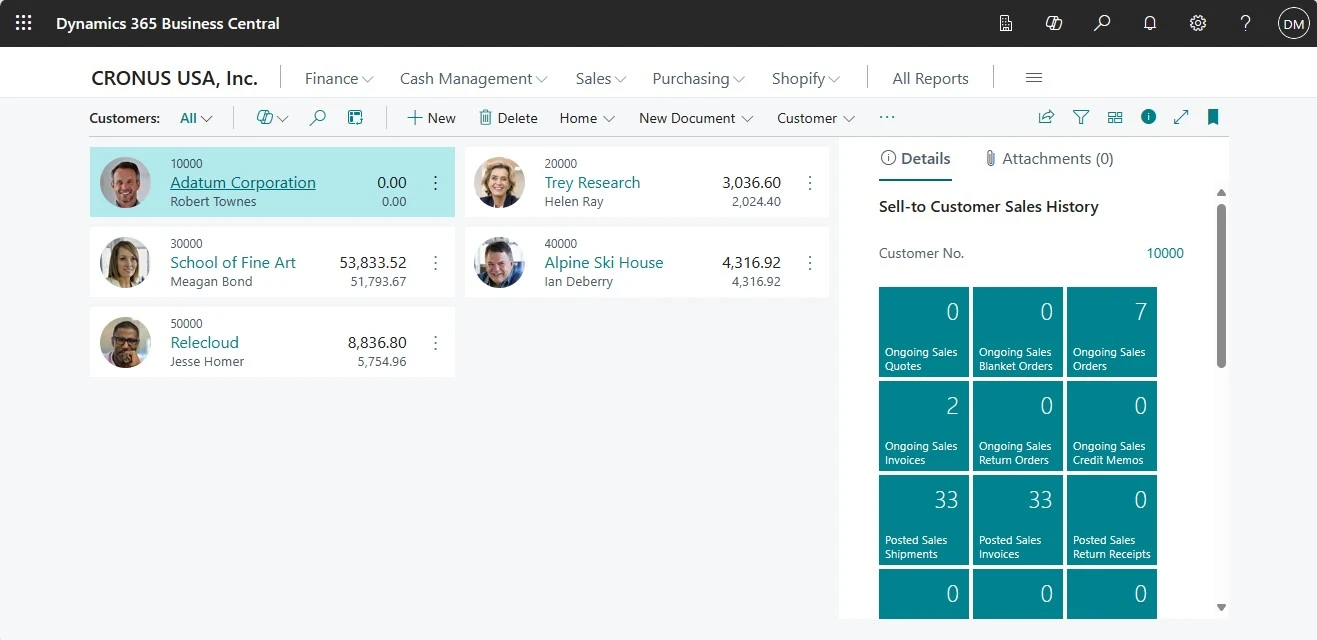
Pros and Cons
- Pros
- Intuitive interface for Microsoft users.
- Scalable with customizable features.
- Large support network and integrations.
- Cloud and on-premises deployment options.
- Automation improves efficiency.
- Cons
- Setup can be challenging without IT expertise.
- Advanced features increase costs.
- Learning advanced tools takes time.
- May need customizations for niche industries.
Who It’s For
Microsoft Dynamics 365 Business Central is ideal for small to medium businesses that require scalable ERP software focusing on integration and advanced functionality. It’s particularly well-suited for businesses already using the Microsoft ecosystem, such as Microsoft Office 365, Teams, and SharePoint, as it offers seamless connectivity across these platforms.
Oracle NetSuite
 Global business management compliance
Global business management compliance  Speeds up the financial closing process
Speeds up the financial closing process Oracle NetSuite is a premier cloud-based ERP system tailored for small businesses and startups. Renowned for its functionality and scalability, it provides an all-in-one solution that streamlines key business processes, from financial management to customer relationship management (CRM) and e-commerce operations. As an Oracle product, NetSuite combines cutting-edge technology with a user-friendly interface to help businesses enhance productivity, improve efficiency, and support long-term growth.
Key Features
- Advanced financial management tools: These include accounts payable, accounts receivable, general ledger, and cash management, allowing businesses to maintain a clear view of their financial health.
- Comprehensive inventory and supply chain management enables businesses to track inventory levels in real time, optimize procurement processes, and streamline the supply chain for greater efficiency.
- Customizable dashboards for data visualization: Provides real-time insights into business performance with tailored dashboards that suit specific roles and operational requirements.
- Automated workflows: Reduces manual effort by automating repetitive tasks such as invoicing, order processing, and reporting, improving overall efficiency.
- E-Commerce integration: Seamlessly connects with e-commerce platforms to manage sales, inventory, and customer interactions from a single system.
- Global business management: It supports multi-currency, multi-language, and multi-subsidiary operations, making it ideal for businesses with international ambitions.
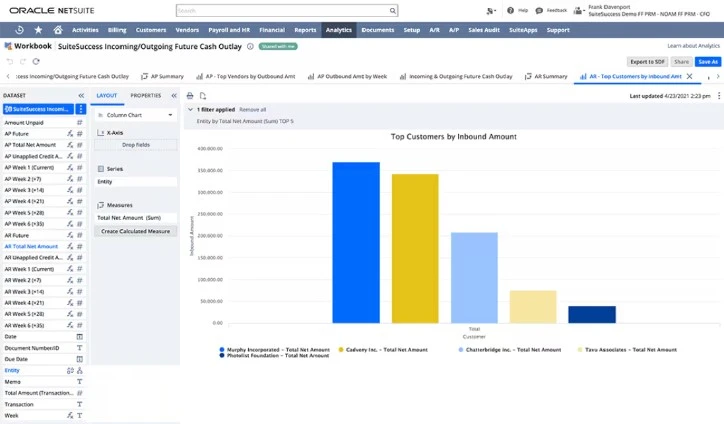
Pros and Cons
- Pros
- Scales with your business growth.
- Automates tasks for improved accuracy.
- Real-time analytics for better decisions.
- Versatile for multiple industries.
- Cloud-based for remote access and collaboration.
- Cons
- Higher cost compared to other ERPs.
- Extensive features can overwhelm small teams.
- Implementation can be time-consuming.
Who It’s For
Oracle NetSuite is the ideal ERP solution for growing small businesses and startups that need a comprehensive, scalable platform to support rapid growth and operational efficiency. Its cloud-based architecture and extensive suite of features make it a perfect fit for organizations aiming to streamline processes, enhance visibility, and automate key functions.
Sage Intacct
 Cloud-based and AI-driven ERP solutions
Cloud-based and AI-driven ERP solutions  Powerful project accounting & automations
Powerful project accounting & automations Sage Intacct is a top-tier ERP solution designed with a strong focus on financial management for small to medium-sized businesses. Known for its advanced accounting capabilities, it simplifies financial processes and delivers precise insights to support better decision-making. As a cloud-based platform, Sage Intacct is accessible from anywhere, offering flexibility and cost-efficiency. It’s especially popular among businesses prioritizing streamlining and automating their financial operations.
Key Features
- Advanced accounting tools: Supports multi-entity consolidations, automated accounts payable and receivable processes, and advanced revenue recognition to handle intricate accounting needs.
- Budgeting and forecasting: Provides tools to create and manage budgets, project cash flow, and plan financial strategies effectively.
- Expense management: Streamlines expense tracking and reporting, reducing errors and saving time on administrative tasks.
- Integration with third-party applications: Offers seamless connectivity with popular business tools such as Salesforce, payroll software, and payment platforms for enhanced functionality.
- Real-time financial reporting: Enables businesses to generate comprehensive financial reports, offering insights into performance metrics and helping leaders make data-driven decisions.
- Customizable dashboards: Tailor dashboards to track key performance indicators (KPIs) relevant to specific roles or departments.
- Audit-ready compliance: Ensures adherence to accounting standards such as GAAP and IFRS, making it easier to meet compliance requirements.
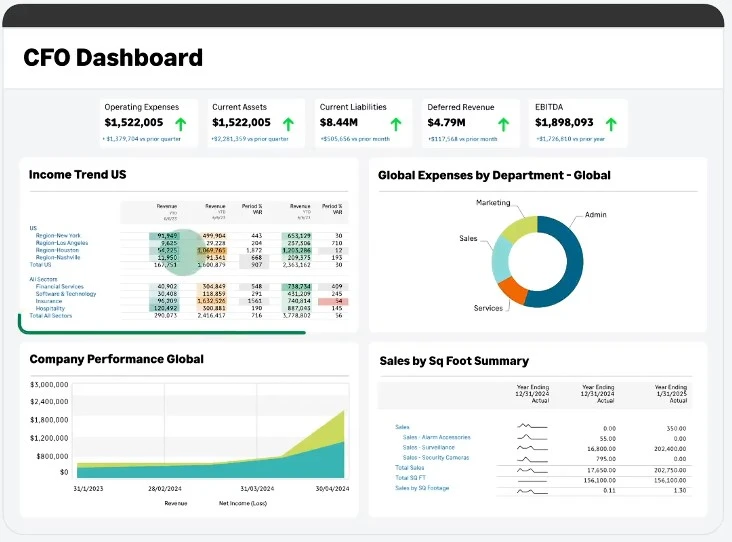
Pros and Cons
- Pros
- Affordable and easy to use for small businesses.
- Specialized in financial management tools.
- Cloud-based for flexibility and scalability.
- Automates tasks like invoicing and reporting.
- Adapts to growing financial complexity.
- Cons
- Limited features outside financial management.
- Not ideal for complex, multi-functional operations.
- Customization may require third-party support.
Who It’s For
Sage Intacct is best suited for small and medium enterprises prioritizing financial management. It is a brilliant software for businesses that need a full-featured yet user-friendly solution for automating accounting processes. It’s particularly ideal for organizations seeking real-time financial insights, streamlined revenue management, and compliance with complex accounting standards.
Related Articles
Acumatica
 Pricing model that scales with your needs
Pricing model that scales with your needs  Real-time dashboards & customized reports
Real-time dashboards & customized reports Acumatica has emerged as a go-to ERP solution for small businesses, particularly for those looking for flexibility, affordability, and tailored industry solutions. Unlike many traditional ERP systems, Acumatica is designed as a cloud ERP for small businesses, allowing remote access and seamless scalability.
It caters to various industries, offering specific modules for sectors like construction, distribution, and manufacturing, making it a versatile option for diverse business needs.
Key Features
- Industry-specific modules: Tailored modules for industries such as construction, distribution, manufacturing, retail, and professional services. These modules are designed to address the unique challenges of each sector, such as project cost tracking for construction or inventory management for distribution.
- Mobile-first design: With a focus on mobility, employees can access real-time data and perform tasks like approving orders or updating project statuses directly from their smartphones or tablets.
- Real-time data insights: The platform promotes seamless team communication by allowing users to share and access data in real-time. This ensures everyone, from sales teams to warehouse staff, has up-to-date information to make informed decisions.
- Transparent pricing model: Unlike many ERP solutions, Acumatica uses a consumption-based pricing model, meaning businesses are charged based on their usage rather than the number of users.
- Supply chain management: Acumatica includes real-time shipment tracking, supplier performance monitoring, and demand planning to optimize procurement.
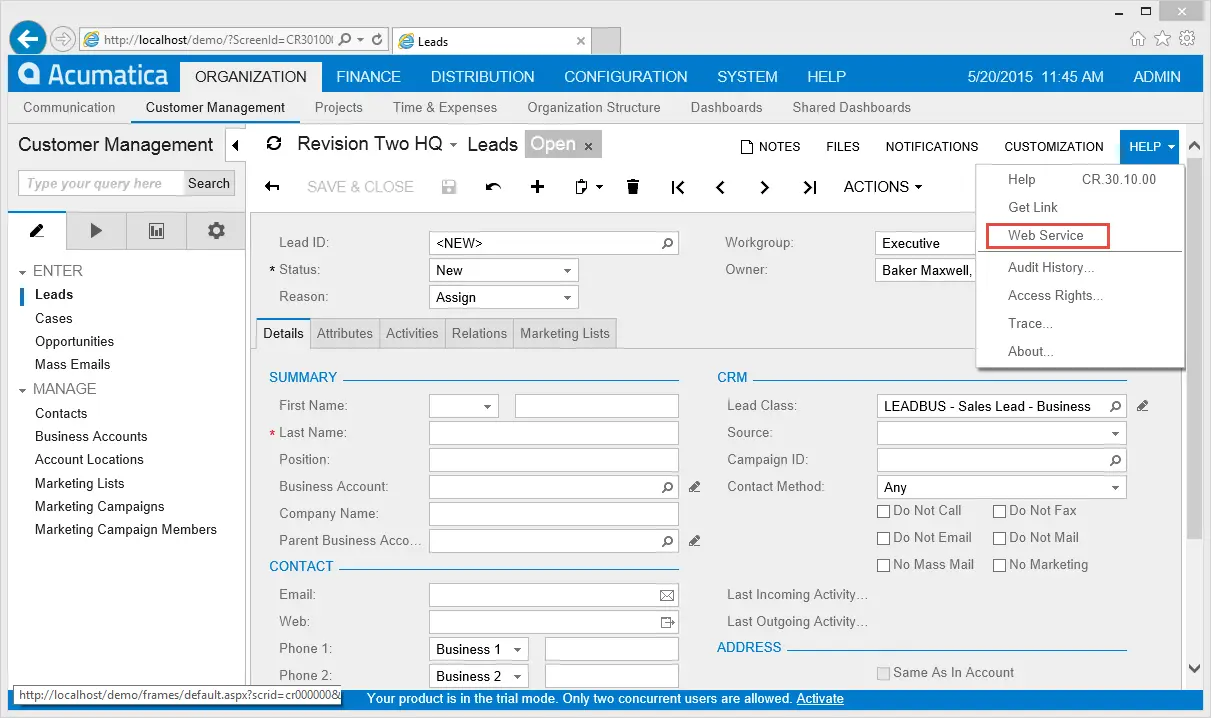
Pros and Cons
- Pros
- Modular design allows tailored features.
- Open APIs for customization across industries.
- Cost-effective with usage-based pricing.
- Comprehensive training and responsive support.
- Cons
- Implementation can be time-intensive.
- Limited offline functionality due to cloud focus.
Who It’s For
Acumatica is best suited for small and medium businesses seeking a flexible, scalable ERP solution tailored to their industry needs. Acumatica is an excellent choice for organizations in industries like construction, manufacturing, retail, and distribution, where complex workflows and industry-specific requirements demand a customizable solution.
QT9 QMS
 Automate manufacturing & sync operations
Automate manufacturing & sync operations  Customized dashboards & flexible access
Customized dashboards & flexible access QT9 QMS stands out in the ERP landscape as a highly specialized solution focused on quality management. Unlike traditional ERP systems, which aim to cover many business processes, QT9 QMS narrows its focus to compliance, quality control, and regulatory management. This makes it an invaluable tool for small businesses operating in regulated industries such as healthcare, manufacturing, pharmaceuticals, and food production
Key Features
- Corrective and Preventive Actions (CAPA): QT9 QMS includes tools for tracking and managing corrective and preventive actions. This ensures that non-conformities are quickly identified, addressed, and documented, preventing recurrence and improving overall operational efficiency.
- Audit management: Allows businesses to schedule, track, and document internal and external audits. Automated reminders and comprehensive reporting tools ensure audits are timely and meet regulatory requirements.
- Supplier management: Helps businesses evaluate, track, and manage supplier performance, ensuring that vendors meet quality and compliance standards. This feature is particularly useful for maintaining high-quality inputs in manufacturing processes.
- Employee training tracking: The platform includes a training module to manage employee certifications, training records, and skill assessments. Automated alerts help ensure employees stay current with required training and qualifications.
- Change Management: The system tracks changes to processes, documents, and products, ensuring they are documented and approved according to internal protocols. This feature is essential for maintaining quality in industries with frequent updates or new product development.
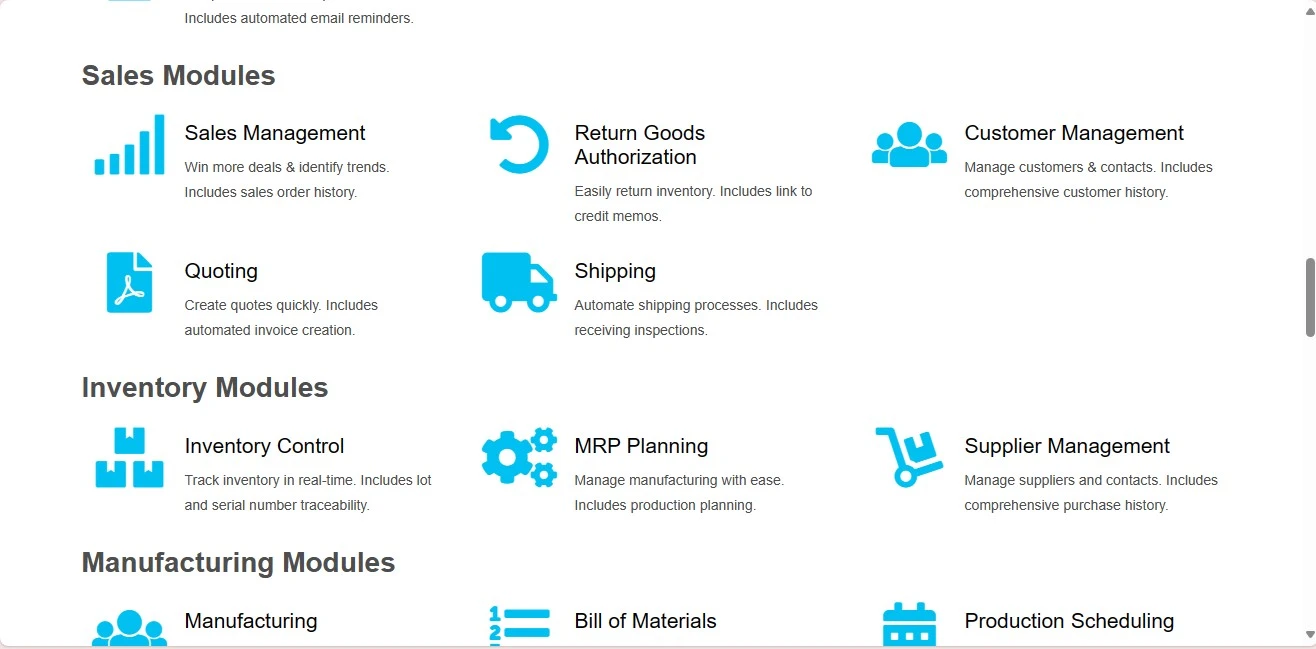
Pros and Cons
- Pros
- Automates regulatory compliance processes.
- User-friendly interface for quick adoption.
- Customizable workflows for industry needs.
- Scalable cloud-based solution for growth.
- Cons
- Limited to quality management functions.
- Not a full ERP solution for broader operations.
- Less suited for non-regulated industries.
SAP ERP
 Integrated modules for all operations
Integrated modules for all operations  AI-powered demand forecasting tools
AI-powered demand forecasting tools SAP ERP has long been recognized as a global leader in the enterprise software market, offering comprehensive solutions that address the needs of businesses of all sizes. Traditionally catering to large corporations, SAP has expanded its offerings to meet the needs of small and medium-sized businesses (SMBs), ensuring they can leverage the same robust tools used by industry giants.
Key Features
- Advanced modules: Allows businesses to manage core operations seamlessly. The HR module supports payroll, benefits administration, and employee performance tracking. The finance module provides tools for accounting, budgeting, and financial forecasting, while the supply chain module optimizes procurement, inventory, and logistics processes.
- Data analytics and reporting: Businesses can leverage real-time data insights to monitor performance, identify trends, and make informed decisions. The platform integrates with SAP Analytics Cloud to provide advanced predictive and prescriptive analytics.
- Scalable to accommodate growth: This software is designed with scalability in mind. Whether adding new business units, handling increased transaction volumes, or entering global markets, SAP ERP can adapt to meet growing demands.
- Industry-specific solutions: Tailored solutions for various industries, including manufacturing, retail, healthcare, and professional services.
- Integration with emerging technologies: SAP ERP integrates with advanced technologies like artificial intelligence (AI), machine learning, and the Internet of Things (IoT). These features enable businesses to automate processes, optimize supply chains, and predict market trends.
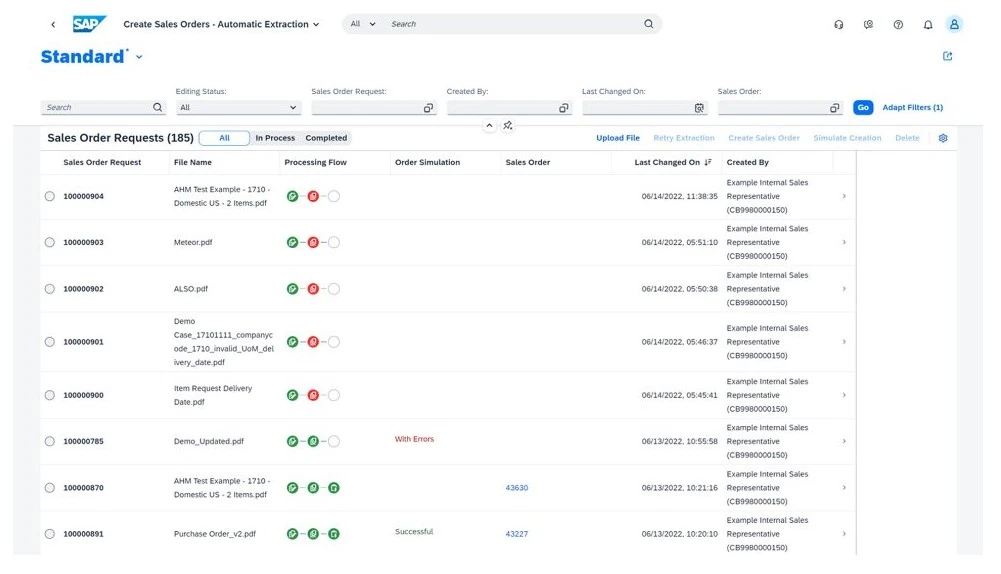
Pros and Cons
- Pros
- Trusted global brand with proven reliability.
- Industry-specific features for diverse sectors.
- Supports global compliance for international operations.
- Cons
- High cost may deter small businesses.
- Setup requires time and expertise.
- Steep learning curve for new users.
Who It’s For
SAP ERP is ideal for established small and medium businesses with ambitious growth plans. It’s particularly well-suited for businesses needing a scalable platform capable of expanding into new markets or managing increased operational complexity. SAP ERP drives long-term success for businesses focusing on global compliance, advanced analytics, and seamless scalability.
Why Small Businesses Need ERP Software
Small businesses often face challenges such as limited resources, manual processes, and lack of real-time data. An ERP solution for small businesses helps address these challenges by:
- Streamlining operations: Automates repetitive tasks and integrates key functions like accounting, inventory, and customer relationship management.
- Improving decision-making: Provides real-time insights into business performance.
- Enhancing scalability: Grows with your business by adding new employees, features, and modules.
- Saving costs: Modern cloud-based ERP solutions for small businesses offer cost-effective plans without expensive hardware.
Whether running a startup or a growing business, choosing the best ERP for small businesses can transform how you manage operations and achieve growth.
What to Consider When Choosing an ERP System
Before choosing an ERP system for your business, it’s crucial to understand what to look for. Here are some factors to consider:
- Cloud-based vs. on-premise: Many small businesses prefer cloud ERP systems for small businesses due to their affordability and ease of access.
- Cost: Look for an affordable ERP with essential features without exceeding your budget.
- Ease of use: The system should be user-friendly, minimizing the need for extensive training.
- Scalability: Choose an ERP system that can grow with your business.
- Industry-specific features: Some ERP solutions offer tailored modules for retail, manufacturing, and construction industries.
How to Choose an Affordable ERP for Small Businesses
Finding an affordable ERP doesn’t mean sacrificing quality. Here are some tips:
- Opt for cloud solutions: Cloud-based ERP systems reduce upfront costs as they don’t require extensive hardware.
- Evaluate free trials: Many providers offer trials to help you explore their features.
- Focus on core features: Choose an ERP that covers your immediate needs and allows you to scale up later.
Final Thoughts
Selecting the best ERP software for small and medium enterprises is a critical decision that impacts efficiency and growth. By leveraging the right ERP system, small businesses can streamline operations, boost productivity, and achieve sustainable growth. Whether you’re looking for affordable ERP options or the best small business cloud ERP, the right solution awaits you.
FAQ
Q: What is the cost of ERP software for small businesses?
A: ERP costs vary, but affordable ERP systems for small businesses typically cost $50/user/month for basic features.
Q: How long does ERP implementation take?
A: Implementation times range from weeks to months, depending on the complexity of your business.
Q: Is a cloud-based ERP better for small businesses?
A: Yes, cloud ERP for small businesses offers flexibility, cost-effectiveness, and ease of access.
Q: Can small businesses use ERP for free?
A: Some providers offer free versions or open-source ERP software, but these often have limited features.
